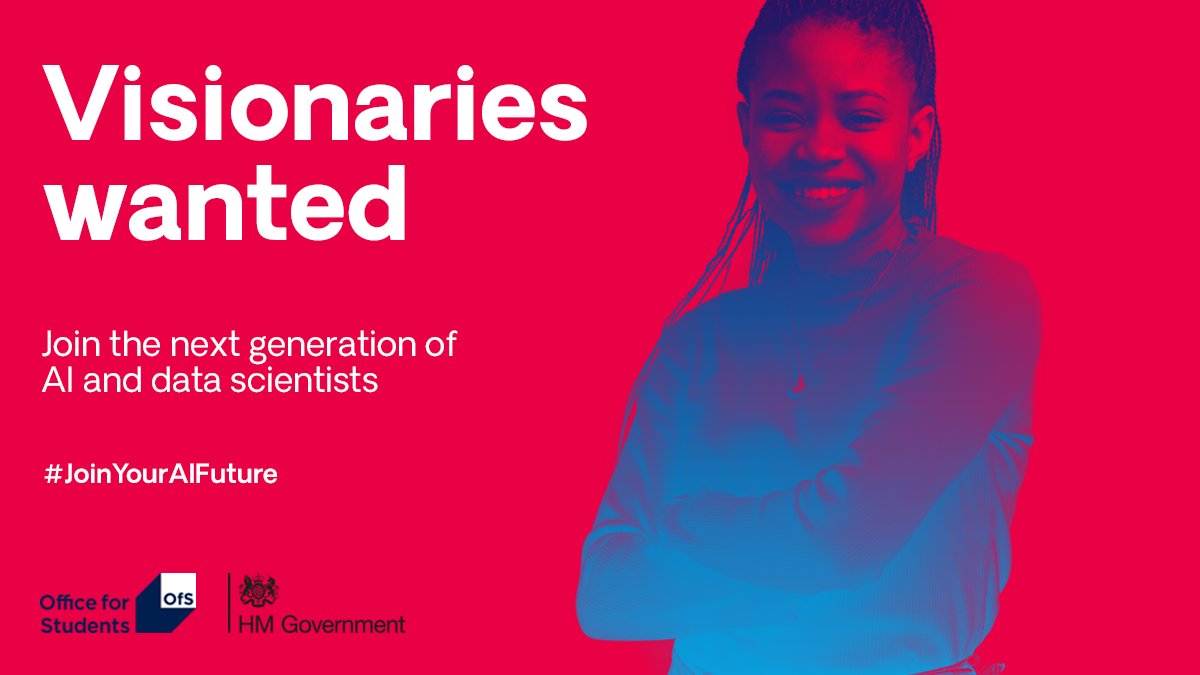Postgraduate conversion courses in data science and AI are attracting people from a range of backgrounds to learn skills for new employment. University of Hull student Miranda Maimela reflects on why she chose the course.

Imagine being in the middle of a lockdown and having ample time to think and reflect about life. That was my reality and probably the same for a lot of people. After some introspection, I realised that I didn’t enjoy my job anymore. This then led me to start researching and looking for alternative career paths that complemented my skillset and experience.
I was reading an article one day and the phrase ‘data is the new oil’ stood out to me. My curiosity was piqued so I started exploring a career in data science and how to enter the field. That's when I came across the Office for Students website outlining the new MSc courses in data science and AI at various universities.
As I became more and more interested in pursuing a career in data science, I realised that the conversion courses involved in this programme would be a great way to learn the foundational concepts as well as programming skills.
For me personally, once I saw that the University of Hull offered a conversion course – and despite my hesitancy, as I’d been away from formal education for a few years – I decided to apply anyway. Hull was where I studied my undergraduate degree and I was enthusiastic about going back to a place that holds so many great memories.
What ultimately made me apply to the conversion course is that it helps to overcome the barriers of entry into data science and AI. The courses are designed to teach you the fundamental concepts underpinning data science, which include the statistical and mathematical components, programming skills as well as soft skills like presentation, storytelling and problem solving.
Due to the nature of the programme as a conversion course, we all came into it with different skills and experiences having completed varied undergraduate degrees ranging from teaching, law, politics and finance among others. This meant that everyone was able to bring unique and diverse thoughts during workshop discussions. This made things more interesting as we were able to see and consider solutions through a different lens.
I believe this is what has made the course invaluable. Despite the lockdowns and with all teaching and practical workshops moving online, the course has been well organised and structured with the lecturers always on hand to assist and support us.
In saying that, you need some level of discipline and structure to be able to motivate yourself to study even when you don’t want to, especially in winter when we’d all rather be cosy in bed.
Coming from a finance background with minimal statistical knowledge and no programming experience, the course seemed daunting. However, I’m glad I applied and went into the course determined, focused and with an open mind.
Since starting the course, I have managed to complete a work experience placement with Team GB as a Data Analysis Coordinator for the Tokyo Olympic Games 2020. This opportunity was possible through the university’s partnership with Team GB. The six-week project involved analysing data from previous kitting out events to enable the coordination of individual kit requirements for each Team GB athlete in advance of the games.
I wouldn’t say I had any expectations prior to starting the placement. However, I went in with an open mind with the aim of learning as much as I could whilst considering how I could utilise my skills and knowledge to contribute to the success of the project.
From this experience, I have been able to enhance my data analysis, data visualisation and presentations skills which I’ve been able to draw upon in my current internship.
If you are passionate about data and extracting insights from it, then I would recommend applying for the course as I believe this field has good career prospects.
I would encourage anyone to not be put off from applying if you don’t come from a STEM or quantitative background. Everyone's knowledge and skills matter and help to contribute to the diversity of the course.
Also, the courses have been designed to bring everyone to the same level without assuming any prior knowledge. If you decide to apply for any of the courses and gain admission, I would suggest putting yourself out there and networking with others in the field by attending meetups and webinars.
Additionally, a mentorship programme could also be useful. For example, Hull has an e-mentoring scheme where they match you up with a mentor in your desired field or industry and this has proved invaluable for me.
Find out more about the programme and available courses.
If you are looking for highly skilled data science students to work for your business or organisation, get in touch with participating universities directly to find out more and to express interest in work placement opportunities.
Follow the programme on social media using the hashtag #JoinYourAIFuture.

Comments
Report this comment
Are you sure you wish to report this comment?